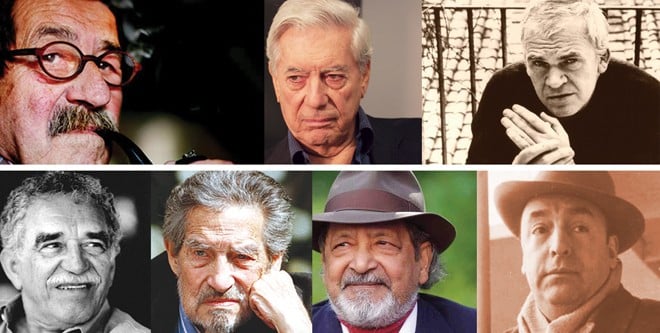

Imagine a situation where an important artist is refused an exhibition, not on the basis of aesthetic quality of his work but on ethical grounds. The artist may have shown in many museums around the world and at several local galleries but is rejected because he collaborated with the most infamous military dictator of the country. The general not only hanged an elected prime minister but imposed laws against basic human rights and slapped an era of fear and oppression.
The artist is denied the opportunity to exhibit not because he was a party to any of these crimes but his meetings with the dictator and his failure to denounce these acts generate a reason for disappointment.
In a recent article, a Mexican journalist criticised Gabriel Garcia Marquez for his undaunted support to Fidel Castro, the leader of Cuba. The novelist was accused of ignoring the matter of political prisoners, particularly of writers and intellectuals who were detained by the Castro administration along with banning their books. A similar sort of allegation is often seen against Mario Vargas Llosa who, after a brief period of association with the left, switched over to rightist politics, to the extent of running for the post of Peru’s president in general elections and losing it, fortunately.
Apart from these two authors from South America, a number of creative personalities have been targeted on their political positions in the past. For instance, Gunter Grass has been criticised for joining Waffen-SS, the Nazi party’s fighting wing, in his youth. Likewise, a young Milan Kundera is accused of spying on his fellow citizens for the communist authorities of his country. The great poet of Spanish language Pablo Neruda, who was associated with the communist party and always advocated the poor in his public life and poetry, was blamed of having a privileged lifestyle that did not match with what he preached.
Many writers, artists and intellectuals we admire today have been defending some of the most cruel, conservative and oppressive regimes. This list includes authors such as Jorge Luis Borges, Octavio Paz and V.S. Naipaul. Nobel Laureate Naipaul is normally attacked in our surroundings because of his negative and nasty remarks and unkind observations about Islam, Pakistan and people of South Asian origin.
In neighbouring India, many people were surprised to find the names of film stars who not only supported right wing BJP in recent elections but some were candidates to represent this party and its prime minister who is said to have perpetuated communal riots as the chief minister of Gujarat. One of these contestants was Paresh Rawal, the versatile actor of Bollywood who won his parliamentary seat. However, when a Muslim from Pakistan or India, who claims to be an ardent admirer of Rawal and is also opposed to Hindutva, watches the movies of Paresh Rawal, would he ignore the moral position and politics of the actor?
Although these questions are not addressed openly, often our appreciation is based on ethical parameters. Usually, both the measures for likes and dislikes are dependent upon the moral decisions of an artist. Contrary to assumptions, these do not necessarily have to match. Sometimes, if an artist is notorious or morally corrupt, his/her works may be admired more, compared to those who are always politically correct. The most illustrative example in this regard is that of film actresses who are more popular if they are the focus of juicy scandals. Perhaps, people expect the artists to be more charming if they lead a lifestyle which is different than the ordinary.
In a sense, the general public classifies morals into two categories -- it segregates crime from sin. People know of creative individuals who sleep around, drink and do not practise religion; yet these behaviours are acceptable even in our supposedly orthodox society. But if the same individuals are seen as committing theft, murder or unpatriotic behaviour, they are condemned openly.
The question remains: whether it is possible to separate the creator from his work. The creations in art -- paintings, novel, music, film etc. -- are different from the artiste’s actions in real life. Art (including literature) is executed for a wider audience belonging to different regions and eras, while personal acts are confined to a particular location. Yet Neruda’s preference for a lavish style of living, Naipual’s disapproval of a religion, Grass’s connection with Nazis or Marquez’s relationship with an autocrat are not forgiven or forgotten, even though their works are widely admired.
In this atmosphere of ‘ethical cleansing’, often a writer or artist has to bear and justify his past deeds so that his present work is not misjudged. For example, Kundera or Grass are reported to have collaborated with authorities in the past but, on the basis of those brief phases of their lives, it would be illogical to reject their later works and contributions.
However, like many other things in this world, the matter of moral judgment of a creative person is not resolved in a rational manner; because the public views him as the redeemer of his immediate circumstances or one who provides him the hope or illusion of perfection, pleasure and profundity.
Thus a crime or sin which is forgiven if committed by a common man is not overlooked if a creative person commits it. For a layperson, he represents a world of ideals in which words and actions must correspond and any deviation from this order causes disappointment. Because contrary to contemporary theories, art and literature are still considered as a tangible manifestation of collective dreams and desires. A person who does not represent perfection not just in his creative outputs but in his political, social and moral standing too, is doomed to face charges of all sorts. Unless and until the work helps him in liberating the moral pressures and proves the ultimate power of Art.